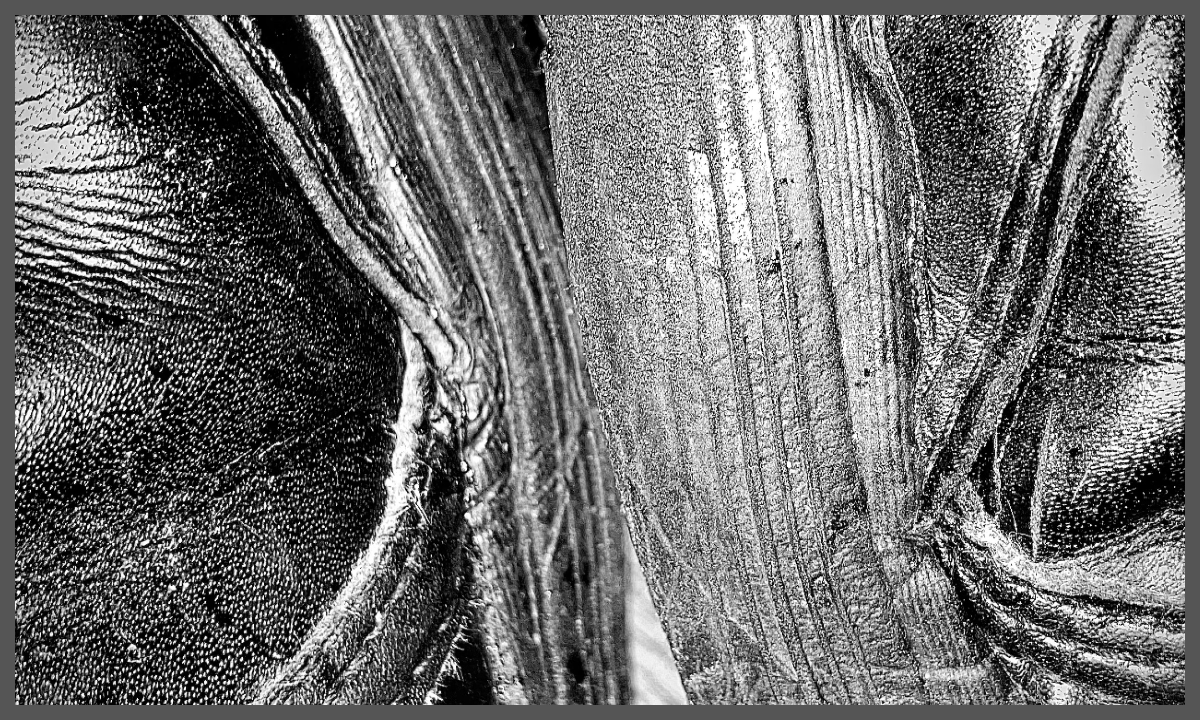Hello and welcome back!
First, I want to quickly mention Modern Wisdom #709 for its relevance to some of my previous posts related to nutrition. If you want a professional perspective on some of the topics discussed in the calories series, this is a good podcast episode to listen to.
Continuing off the last couple of weeks, I will be concluding my thoughts on productivity and masculinity.
While reviewing my post last week and reflecting on the end of the academic semester, I want to insert a caution. I believe in what I said last week, but I am reflecting on my intentions. Productivity must have some goal behind it. This goal can be superficial or transcendent, but there must be something desired, something to be productive towards. In the next few weeks, I want to commit some time to analyzing what I am driven by and my innermost values. I will create a post where I attempt to be honest with myself and find insight. By writing it in a blog post, I can track my thoughts and then later reflect on it in the future. There is also the possibility that from sharing my thoughts publicly, I can express myself in ways that are different from the internal expression of thoughts. Additionally, the ideas have the potential to be shared, reacted to and interpreted by individuals other than myself. Ultimately, I am confident that I will gain some insight.
In some ways, my goal of productivity was to become productive. By improving and doing the work, I was directly accomplishing my goal. This gamification of life is a very powerful motivator for me personally. I find comfort in knowing that I am improving my metrics because this gives me hope that eventually, these metrics will be reflected in every aspect of my life. The issue with productivity being the goal is that once I reach a certain level of success my values are likely to change. I will not need to hope or gamify my life to find comfort because I will have built more tangible security. To further myself beyond that point I worry will lead to regret. Then, I must ask the question, “what is the next goal?” I think that this thought will lead me toward improving relationships, family, and legacy; however, I do not want to get too deep into this thought today.
The purpose being, when productivity is no longer the goal of productivity, the sacrifices required for productivity will likely outweigh the worth of productivity. As I repeatedly mentioned in my last post, productivity has diminishing returns, so the best balance for me is likely somewhere in the middle. Unless we extend the productivity goal toward improving relationships, family, and legacy. In that way, I could preserve this ideology as I transition through life, but this is stretching the idea. Productivity as I have defined it is more of a metric, a quantity, an object to obtain. Arguably, the meaning of life is not found there. The things that are existentially valuable to me are likely more substantive and profound, maybe even more elementary than what productivity can gain. For this reason, I predict that my happiest life will find a balance between the two–productivity and what I will call ambiance, ambient productivity, or just “living.”
Intentionally and coincidentally, I made the perfect transition into a conversation that I listened to this past week. In Modern Wisdom #717 they briefly talk about the pitfalls of success. This ties directly into what I am talking about above. “Convenience starts to become more and more important to you… the positive is that you start maximizing your time over target… but the negative side of it is, you do reach a point where if your best friend had a flat tire three blocks from your house, you would send a tow truck. When you have reached that stage of avoiding being inconvenienced, you have accepted yourself out of humanity… On one hand they become more human and on the other they become less. The goal is to become more without becoming less” (Williamson #717 – 21:25). I think Boering is referring to a very similar idea. He has made it much further along than I have, so I can not pretend to understand entirely, but I am interpreting the ideas as similar. What he is saying, in the context of what I said, is that we want to increase productivity, but in this game, we should not lose purpose, we should remain human and evaluate our goals.
Finally, I wanted to question these ideas from my personal life:
I have been thinking about how far ahead I could get by using it for productivity instead of relaxation. Is this an unhealthy mindset or is the mindset of the majority the unhealthy one? Like mentioned above, am I losing my humanity by making these sacrifices? What am I sacrificing for this? Is it worth it? Is this even the best for productivity long term? I guess the answer partially lies within my own personal circumstance. I am curious to know your thoughts.
This is where I will leave productivity to rest for now.
Masculinity continued…
Last week, I mentioned how I felt the external pressures around me encouraging me to pace myself in an attempt to relieve my anxiety about the future. While I do not believe that malevolence fuels the motive, I believe that this atmosphere surrounds my generation and is reflected in the growing unhappiness in our culture. In the society I have grown up in, relative to the past, there is an immense privilege given to even less privileged individuals. The progressive nature of withdrawing pressure from childhood decision making and disabling the need for grit in young people I believe is correlated with the unhappiness that we find in the younger populations. I am saying this as a member of this cohort, and I have made this observation in my peers.
I have listened to Chris reference the “slow-life theory” and the comparative lack of improvement seen in the younger generations to the previous generations. I have been in that cohort of individuals. I am grateful now to at least be able to perceive the world from a wider lens, but I can still see how my actions and the actions of my peers are affected. I think that this experience is directly related to masculinity. I think this is, at least in part, a suppression of masculinity. This docile persuasion and tendency among men has ripple effects both on the individual and society. Currently, I can only make assumptions and cite anecdotal evidence, but unsubscribing from my past lifestyle, I have noticed improvements. It was not easy and I believe that there are sacrifices to this change, but ultimately, I am much happier, more productive, and an overall improvement of who I used to be. I can not nail this down with anecdotes and quick ideas, but I have a firm belief that there is a powerful internal instinct inside men that society is suppressing in the pursuit of ideals. My worry is that we are ignoring the loss of the things that have historically given our communities strength in place of something that is arguably superficial.
Let’s first imagine what life would have been like from an evolutionary and historical perspective. First, if we go back a couple millennia, humans had a constant pressure to be fit enough to both be able to secure food and ultimately mate and raise a family. The alternative was death. Again, if we go back only a couple hundred years, before the advent of basic modern technologies, there was still great uncertainty for food and basic survival resources. This pressure spanned from early childhood through the life of almost every human that existed before the modern era. Simply, we could not stop working if we expected to survive and perpetuate our genes. In contemporary times, this is not the case. I suspect that this change likely began the convenience and security increase from technology in the last few decades. This ambient sense might have been accumulating since the beginning of the industrial revolution, but only now, in our relatively stable, secure society, can we observe the more extreme effects. “Very few young men are literally starving or having to steal food to survive. And, now, if you want to do something difficult, you have to make the choice to do it, rather than be pressured by external factors” (Williamson #713 – 34:25).
MW #713 Chris Williamson and Rob Henderson talk about the young male syndrome, the male sedation hypothesis, unemployment of young, able men, and slow-life theory. (26:00 – 36:15)
Here, I think they are focused on the extremes, but I believe that this effect is distributed more like a spectrum that affects all men and women to a greater or lesser degree. For the sake of time, I will move on, but there are some very interesting correlations here.
Going back to my experience more recently, I have developed trust in myself. I think having ability and competency is a stem of masculinity and is fundamental to both male and female happiness. I have proven to myself what I am capable of—I am incredible even in my low moments, so I know that I will get to where I am going. Here is where I derive strength. If someone, particularly a young man, is convinced that he should stagnate through his life, he will delay any development of skill or competency. How can he then be happy if he is forced to rely on others? How can he be happy if he can not trust himself to be able to push through hardship using his own hands?
A part of my philosophy is the idea that the only reason to worry is if you do not trust yourself to make the right decisions. I recently wrote to my roommate last month, “Do the best you can and take away as much as you can from every experience. If we can do those two things, there is no reason to ever worry. It will be good.”
The emphasis here is on the “do the best you can.”
To do this, we have to have faith in our ability now and trust that tomorrow we will do the same (routine, discipline, self control, mind mastering).
Finally, this week I want to debate toxic masculinity from my perspective. I find it dangerous for society to try and separate men from traditionally masculine traits. I am not as idealistic enough to believe that we can exclusively pick and choose the good from the bad.
To help frame this idea, here is an example. When our companies filter out blunt, harsh, self centeredness from their employees, they also filter out some highly skilled individuals. Think about a war general; the best general is not going to be the nicest guy. It seems naive to me to restrict masculinity at every level and expect to receive the best men. Companies that filter out these individuals might be inspiring “good” traits but not the ones that better their company. If we do this on a societal level, we might filter out the leaders, the visionaries, and the innovators. Look at the CEOS and men that have made it to the top. I’m sure that they are nice people, but they would have to alter their personality to conform with lower level societies expectations. What is the path for driven men that want to do hard work and do not want to act? Must we use this filter? Am I imagining this filter? Must a great leader be able to adapt to societal expectations? How does this culture affect the speed of humanities progress?
I keep thinking of Elon Musk. He is a modern radical thinker, a hard working contrarian. I think he is one of multiple models of masculinity. What I am trying to say is that I think our society slows men like him down. The issue I am finding is that I think that there are more “Elons” lost to our progressive filtering. Maybe it is too risky to allow powerful men to go unregulated. Maybe it is too risky for any man to go unregulated, but how can we allow men like Elon to do their best work and move forward as a society? I do not have a solution, but my proposal today is that it is too risky for all men to be regulated down to perfection as is the popular expectation.
Again there are more ideas that I did not have the time to fully think through this week. I will come back to them another day. Here are the ideas that need some refinement and might inspire a future post:
I caution extremity but there is a strength in the ability to resist flow. Taking from Jordan Peterson’s idea about the capacity for control only coming with strength, a person is not truly kind until they have the power to not be and choose to. Most people are kind as part of an act, a conformity to society. There is an innate sense of kindness in man, I believe this, but if expression is forced by the environment you live within, can you ever be genuine?
The idea that truth is on a scale. We want to express 100 percent but society does not approve of those that are fully honest (at least when at the lower levels of society), so we have to dial back our honesty until we reach secularity, the independence, to voice our truth without fear or repercussions. I see this in my college applications, and in my daily interactions in the professional world. An idea related to this is mentioned in Modern Wisdom #114.
What were almost all men 300 years ago before the Industrial Revolution? Men were nobles, warriors, craftsmen, farmers, adventurers, and slaves. Don’t be fooled into thinking the warriors are gone and slavery is abolished; Society has simply changed the titles of these men. Which are you now?
I am finding that I need to either limit my content or make more time for writing! Thank you all for listening here today. As always, it has been Tristan. Signing off!
Citation
Williamson, Chris, host. “#713 – Rob Henderson – Why Is Everyone Acting Like A Victim?” Modern Wisdom, Spotify, 30 Nov. 2023, https://open.spotify.com/episode/2vMKeKv6lGA1HKIfA4Bjbx?si=34104735398340b9. Accessed 18 Dec. 2023.
Williamson, Chris, host. “#717 – Jeremy Boreing – Going To War With Mainstream Media.” Modern Wisdom, Spotify, 9 Dec. 2023, https://open.spotify.com/episode/77TdD4AL6hUE3QLD572VjR?si=46f5465923ad4937. Accessed 16 Dec. 2023.


